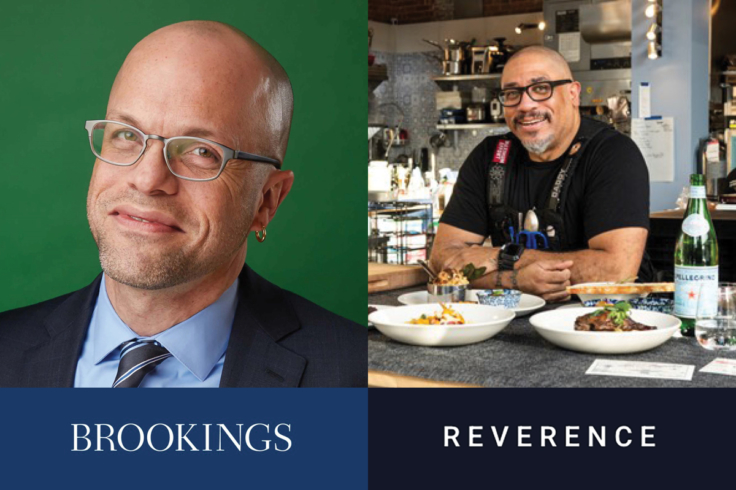Why a phased-in $15 minimum wage would help hard-hit small businesses and local economies recover
The belief that Democrats want to dramatically and immediately raise the federal minimum wage is just one myth about the proposal. Critics also argue it will be a “job killer” for hard-hit small businesses, especially in lower-wage regions. One of us runs a restaurant, so we understand these concerns, but we need to get some facts straight.
First, gradually raising the federal minimum wage to $15 isn’t just a progressive position. Polls show robust bipartisan support among voters. In November, Florida voters made their state the eight in the nation to approve that increase, by a margin 11 points wider than Donald Trump’s victory there.
Voters across the spectrum have come to agree that it is simply not possible for workers, essential or otherwise, to survive on the federal minimum of $7.25 an hour or similar state wage floors. But it’s even less possible to survive on restaurant or other service work that relies on tips and is still paid a sub-minimum rate: $5 an hour or less in 38 states. For many workers laid off during the pandemic last year, total earnings were too low to even qualify them for unemployment insurance.
Furthermore, leaders in the restaurant business—the nation’s largest source of private-sector jobs—are waking up to the fact that it will not survive unless it changes dramatically. On this, the industry is a microcosm of the American economy and, as leading business scholars have explained, the future of retail especially. Pessimistic economic projections of the effects of a federal minimum wage hike, like that by the Congressional Budget Office, ignore or downplay the importance of shifting business models.
What’s more, tipping and the cruel logic of a subminimum wage are vestiges of slavery, and food servers’ reliance on tips makes restaurant customers very powerful, contributing to the worst incidence of reported sexual harassment of any industry. So Main Street employers and a national network of hundreds of restaurateurs are organizing for fair wages as part of industry innovation.
Finally, this is not just about fairness to workers. A sizable body of economic research shows that raising wages on the bottom of the economy boosts consumption and thus would support local recovery from COVID-19.
It’s time for the Senate to back a phased-in raise to the minimum wage and end the sub-minimum tipped wage, which is both racist and sexist. The evidence shows that we can offer dignity to millions of low-wage workers and boost the economy at the same time.
Read more here.
–Xavier de Souza Briggs and Russell Jackson
Xavier de Souza Briggs is a nonresident senior fellow at the Brookings Institution, former White House policy adviser and MIT professor, and member of the Framework for Inclusive Capitalism policy commission. Russell Jackson is the owner of Reverence, a fine-dining restaurant in Harlem.



